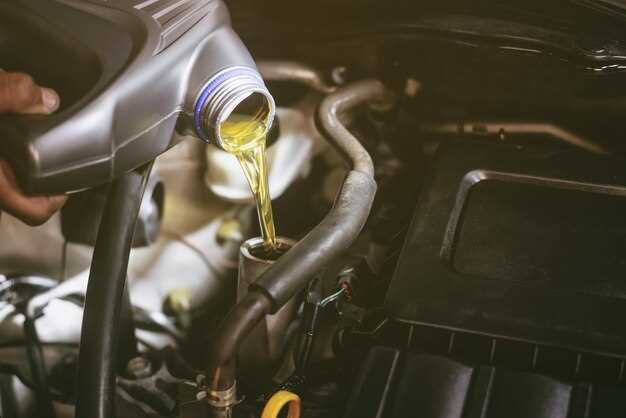

Maintaining the health of your vehicle’s engine is crucial for its longevity and performance. One of the most effective ways to ensure that your engine runs smoothly is by adhering to a regular oil change schedule. Engine oil acts as a lubricant, reducing friction between moving parts and preventing excessive wear. Over time, however, oil can become contaminated with dirt, debris, and other impurities, compromising its effectiveness.
Regular oil changes contribute significantly to the overall health of your vehicle by ensuring that the engine operates under optimal conditions. Fresh oil not only lubricates moving parts but also aids in cooling the engine, enhancing its efficiency. By changing the oil at recommended intervals, you can prevent costly repairs down the line, resulting in significant savings and a reliable driving experience.
In conclusion, the advantages of regular oil changes extend beyond simple maintenance; they are pivotal for safeguarding the health of your vehicle’s engine. By prioritizing this essential service, you not only promote efficiency but also extend the life of your vehicle, making it a vital aspect of responsible car ownership.
Importance of Engine Lubrication and Longevity

Engine lubrication is crucial for maintaining the overall health of your vehicle. Regularly changing the oil ensures that the engine components are adequately lubricated, reducing friction and preventing wear and tear. When oil circulates through the engine, it collects dirt, debris, and contaminants, which can cause damage over time if not replaced.
Effective lubrication also helps in regulating engine temperature. Oil absorbs heat generated during combustion, preventing overheating and promoting optimal performance. This is essential for the longevity of the engine, as excessive heat can lead to catastrophic failures.
Moreover, fresh oil contains additives that enhance its protective properties. These additives help in cleaning the engine, minimizing sludge buildup, and providing a barrier against corrosion. By maintaining proper lubrication, you significantly extend the lifespan of engine components, resulting in fewer repairs and better overall efficiency.
In summary, regular oil changes are vital for ensuring effective engine lubrication. This practice not only supports the engine’s health but also contributes to its longevity, ultimately saving you time and money on repairs in the long run.
Impact of Oil Quality on Fuel Efficiency

The quality of oil used in your vehicle plays a crucial role in determining its overall fuel efficiency. High-quality oil is specifically formulated to reduce friction within the engine components, allowing for smoother operation. When engine parts move with minimal resistance, the vehicle requires less energy to maintain speed, which directly contributes to improved fuel consumption.
Regular oil changes using premium oils can significantly enhance engine performance. Fresh, high-quality oil maintains its viscosity better than depleted oil, ensuring optimal lubrication. This stability reduces wear and tear, prolonging engine life and contributing to sustained fuel efficiency over time.
In contrast, using low-quality oil or delaying oil changes can lead to increased engine deposits and sludge buildup. This not only hampers performance but also increases the workload on the engine, causing it to consume more fuel. A well-lubricated engine operates efficiently, demonstrating that the type and quality of oil are integral to achieving the best fuel economy.
Investing in quality oil and adhering to a regular change schedule ultimately benefits not only the engine but also the wallet, as improved fuel efficiency leads to lower fuel costs.
Cost Benefits of Preventive Maintenance through Oil Changes
Regular oil changes play a crucial role in maintaining the health of your vehicle, leading to significant cost benefits over time. By ensuring that your engine is lubricated with clean oil, you reduce the risk of wear and tear on vital components. This proactive approach minimizes the chances of costly repairs that can arise from neglected maintenance.
Investing in preventive maintenance, such as timely oil changes, can extend the lifespan of your engine. When oil becomes dirty and less effective, it can lead to increased friction and overheating, ultimately resulting in expensive engine damage. By changing the oil regularly, you help maintain optimal performance and efficiency, which translates into better fuel economy and lower operational costs.
Moreover, routine oil changes can enhance the resale value of your vehicle. A well-maintained car with documented service records is often more appealing to potential buyers. The money spent on regular oil changes can thus be viewed as a wise investment, yielding returns when you decide to sell or trade in your vehicle.
In summary, the cost benefits of preventive maintenance through oil changes are substantial. By prioritizing regular oil changes, you ensure the health of your engine, reduce the likelihood of costly repairs, improve fuel economy, and maintain the resale value of your vehicle.






